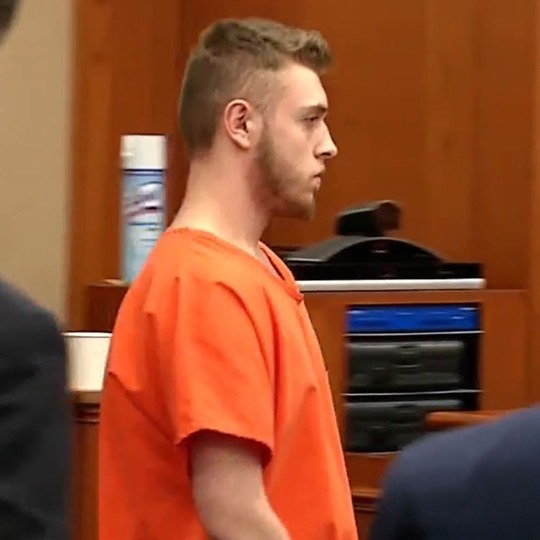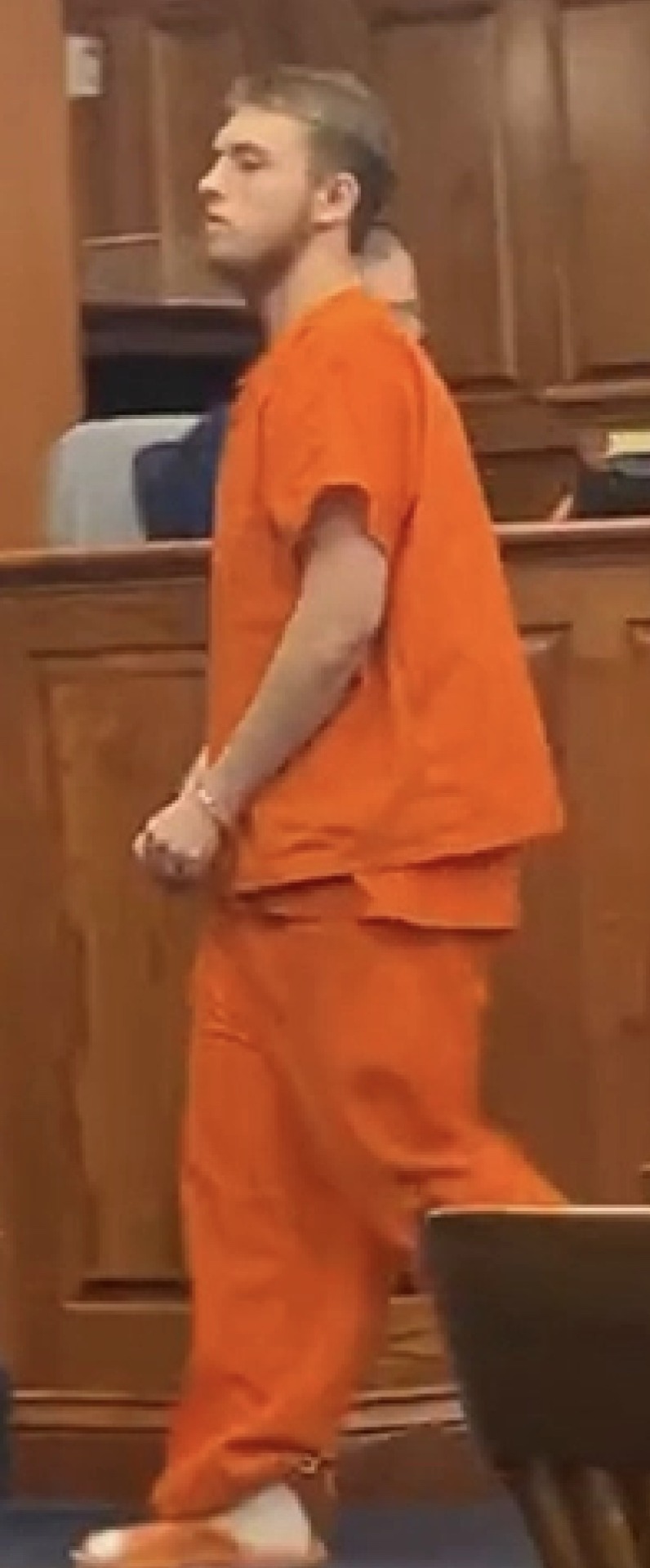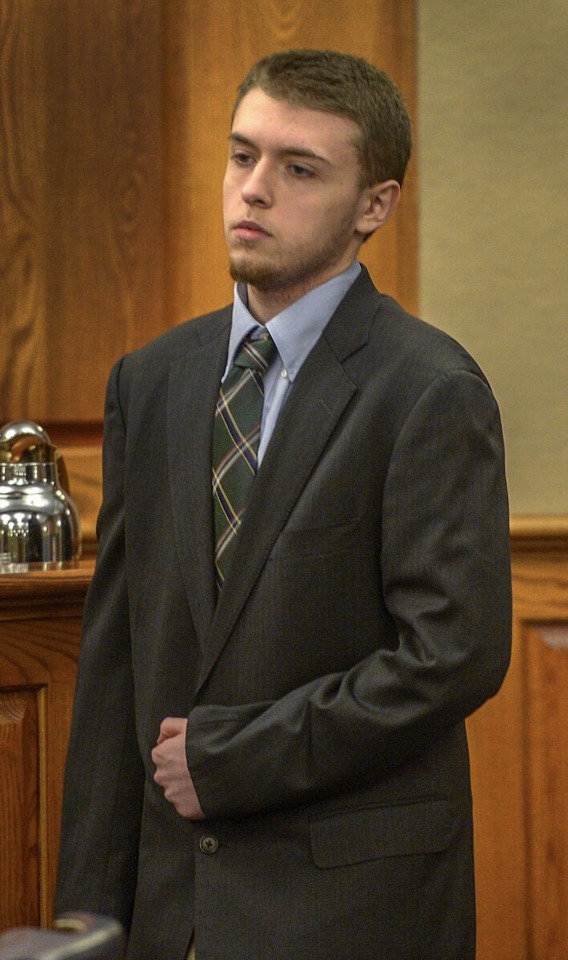#virginia family law attorneys
Explore tagged Tumblr posts
Text
lawyers fairfax va divorce
#lawyers fairfax va divorce#divorce lawyers northern#divorce laws in virginia#divorce attorney in new jersey#virginia family law attorneys
0 notes
Text
youtube
#lawyers fairfax va divorce#divorce lawyers northern#divorce laws in virginia#divorce attorney in new jersey#virginia family law attorneys#Youtube
1 note
·
View note
Text

0 notes
Text
Jerry Falwell Jr.

Physique: Average Build Height: 6'3" (1.91 m)
Jerry Lamon Falwell Jr. (born June 17, 1962) is an American attorney, former academic administrator, and evangelical. Starting with his 2007 appointment upon the death of his father, televangelist and conservative activist Jerry Falwell Sr., Falwell served as the president of Liberty University in Lynchburg, Virginia, until resigning in August 2020 amid a sex scandal.





Some would say I want to fuck because I wanted to fuck his father, Jerry Falwell Sr.. And to that, I say your right, but I think he has grown into a fuckable daddy in his own right.


Born in Lynchburg, Virginia, Falwell attended private schools in the Lynchburg area, from where he graduated in 1980. He then attended Liberty University, where he obtained a Bachelor of Arts in history and religious studies in 1984, and the University of Virginia School of Law, where he obtained a Juris Doctor in 1987. From 1987 until 2007, Falwell served in private practice in Virginia and as the lawyer for Liberty University and its related organizations. He joined the Board of Trustees of the university in 2000. From there, he appointed president of Liberty.



Lets see, questionable real estate deals; possible self-dealing efforts to financially benefit members of the Falwell family; online poll manipulation; and visits to Miami nightclubs.





Falwell Jr. is married to Becki Tilley and lives on a farm in Bedford County, Virginia. The couple have three children. Mmm… a sex scandal involving Tilley and a “pool boy,” whom she and Falwell Jr. “met” on vacation in Miami. Rumor has it, besides the admitted “cucking,” there's a high possibility that Junior/pool boy had sexual contact themselves at some point. All this is hot to me because of his father. First, because I wanted to fuck him. Second, because he’s turning in his grave. Now I want to fuck Falwell even more. Now all he needs to do is balloon up like his father and he’d be perfect.

41 notes
·
View notes
Text
Okay so I have been asked to cast an eye over SB197 in the WV legislature, which is a new bill introduced to both add a new section to WV law as well as amend an existing section about child neglect and abuse, to see what potential issues I see.
TLDR: this is not only really dangerous from a standpoint of people being trans publicly, since one of the big editions is making being trans a display of obscene material and punishable by law, particularly within school grounds, but I am also seeing a lot of parental rights additions that make me REALLY SCARED of how trans kids are going to be treated in WV. I’m going to go thru it section by section and break down why each section frightens me, so hopefully this is educational for folks.
My creds: I worked in family law as an attorney for three years, I was affiliated with a public defenders office for that same amount of time working primarily with juvenile offenders, and I am still an attorney even if I haven’t worked in those fields for the last six months. Plus I’m trans. And I love WV and wanted to live there. So.
WEST VIRGINIA'S FUN NEW SHITSHOW HORROR HOUSE TIME.
The new section (formally titled §18-5-29, Obscene matter in public schools prohibited [I will be calling it the Obscenity section]) is about 700 words of absolute garbage. Essentially what it distills down to is the following.
Section A: prohibiting anything they label as “obscene matter” in or within 2500 feet of any public school library, classroom, building, or other facility under the supervision of the state board of education and requiring that any school officials or personnel who become aware of the material remove it from school grounds. “Obscene matter” is currently defined in §61-8A-1 of the WV code, pretty fuckin broadly (unconstitutionally so in my opinion but ~that’s me~). So basically anything an “average person applying contemporary community standards would find taken as a whole appeals to the prurient interest or is pandered to a prurient interest” (basically, anything ~unwholesome~), anything that an “average person applying community standards” would find depicts sexually explicit conduct in a “patently offensive way,” or anything that a reasonable person would find “taken as a whole, lacks serious literary, artistic, scientific or political value” which basically means E V E R Y THING.
Section B. This is the one that scares the shit out of me tbqh, cause this is folding in the amendment section I mentioned earlier to another part of the WV code specifically relating to child abuse and neglect. This section mandates that any “school officials or school personnel while engaged in a professional capacity or activity” shall be found to be a “custodian of children” under WV law. This basically makes EVERYONE a mandatory reporter, which like…most professionals already are, but at the same time this is EXPLICITLY MAKING ANYONE WHO WORKS IN THE SCHOOL IN ANY CAPACITY (see: any school officials or school personnel) mandatory reporters regarding “obscene matter.” So if an adult working at the school even SUSPECTS that a child has been exposed to “obscene material “while in any public school facility (unclear from the phrasing if the exposure happened on school property, or if the professional just learns about it there) and they decide not to report it (or they “fail to make a TIMELY report” when there’s no real definition of what timely means) then they can be prosecuted for a misdemeanor and imprisoned.
Section C. The state superintendent is going to establish a procedure to file complaints alleging violations of subsection A. If they find that a violation occurred, they will TELL THE COPS THAT IT HAPPENED.
Section D. No government funds (state or federal) can be used to develop or operate programs “designed to promote or encourage sexual activity, whether homosexual or heterosexual” or “to distribute or aid in distribution of any legally obscene materials” within 2500 feet of a school building or facility. Which, woof. We could unpack everything about that one, but it’ll be most of the review.
Section E. If an adult is found to have committed a felony under the child neglect statute related back to this one (if they’re found to have neglected kids by allowing them to view or possess “obscene material” is my understanding, this bill isn’t written that well) then they will be subject to penalties set forth in a felony, which I’m guessing (on average) is at least a year in jail and a thousand dollar fine, from what I’ve seen of WV felony statutes.
Section F. THIS IS THE OTHER REALLY SCARY ONE TO ME FROM A LEGAL STANDPOINT. “Any student or parent, guardian, or custodian on behalf of a student shall have civil cause of action against a county board, public charter school, state board” if the entity caused or was negligent in allowing a violation of the preceding sections, basically if they let anything slide PARENTS CAN SUE THE SCHOOL which like…if you’re talkin about a trans kid who is not out to their parents, they’re found to have “obscene material” (fanfiction?? Fanfiction could qualify here??? Risque art that isn’t even definitionally pornography?? A book abut transitioning that they’re hiding from their parents???) the school is mandated to not only out this kid to their parents, but the parents can then sue the school if the school DOESN’T OUT THE CHILD. Just spinning a hypothetical here but I hate this.
The rest of the bill is adding in definitions to Article 8A of the WV code, which are as follows. Anything italicized is the new language that has been proposed to be added by the bill; anything NOT italicized was already in the law:
(g) "Graphic," when used with respect to a depiction of sexually explicit conduct, means that a viewer can observe any part of the genitals or pubic area of any depicted person or animal during any part of the time that the sexually explicit conduct is being depicted.
(h) "Identifiable minor" means a person: (i) who was a minor at the time the visual depiction was created, adapted, or modified; or (ii) whose image as a minor was used in creating, adapting, or modifying the visual depiction; and (iii) who is recognizable as an actual person by the person’s face, likeness, or other distinguishing characteristic, such as a unique birthmark or other recognizable feature; and shall not be construed to require proof of the actual identity of the identifiable minor.
(i) "Indistinguishable" used with respect to a depiction, means virtually indistinguishable, in that the depiction is such that an ordinary person viewing the depiction would conclude that the depiction is of an actual minor engaged in sexually explicit conduct.
(i)(l) "Matter" means any visual, audio, or physical item, article, production transmission, publication, display, exposure, exhibition, or live performance, or reproduction thereof, including any two- or three- dimensional visual or written material, stereopticon, moving picture, slide, film, picture, drawing, not exceeding $500 video, graphic, graphic novel, or computer generated or reproduced image; or any book, not exceeding $500 magazine, newspaper or other visual or written material; or any motion picture or other pictorial representation; or any statue or other figure; or any recording, transcription, or mechanical, chemical, or electrical reproduction; or any other articles, video laser disc, computer hardware and software, or computer generated images or message recording, transcription, or object, or any public or commercial live exhibition performed for consideration or before an audience of one or more.
(j)(m) "Minor" means a an person under eighteen years of age or a person representing himself or herself to be a minor. Any prosecution under this article relating to a victim who is representing himself or herself to be a minor shall be limited to investigations being conducted or overseen by law enforcement.
And the big doozy here is this one:
(k)(n) "Obscene matter" means matter that:
(1) An average person, applying contemporary adult community standards, would find, taken as a whole, appeals to the prurient interest, is intended to appeal to the prurient interest, or is pandered to a prurient interest;
(2) An average person, applying community standards, would find depicts or describes, in a patently offensive way, sexually explicit conduct; and
(3) A reasonable person would find, taken as a whole, lacks serious literary, artistic, political, or scientific value.
(4) For the purposes of any prohibition, protection, or requirement under any and all articles and sections of the Code of West Virginia protecting children from exposure to indecent displays of a sexually explicit nature, such prohibited displays shall include, but not be limited to, any transvestite and/or transgender exposure, performances or display to any minor.
(l)(o) "Parent" includes a biological or adoptive parent, legal guardian, or legal custodian. (underlining this one for the legal side note that remember that custodian language from before??? that's where this kicks in)
(m)(p) "Person" means any adult, partnership, firm, association, corporation, or other legal entity.
(n)(q) "Sexually explicit conduct" means a ultimate definitive sexual act, normal or perverted, between persons of the same or opposite sex, actual or simulated, including genital-genital, oral-genital, anal-genital, or oral-anal sexual intercourse, sodomy, oral copulation of any kind, sexual bestiality, sexual sadism and masochism, masturbation, excretory functions and lewd exhibition of the anus, genitals or pubic area of any person, or lascivious simulated sexual intercourse where the genitals, breast, or pubic area of any person is exhibited.
okay. well.
I mean. This is all just gonna be an absolute garbage hellscape if this gets passed. THE IMPORTANT THING IS IT HAS NOT BEEN PASSED. If you live in WV, you can call folks and say that you are AGAINST the passage of SB197. Call your state or county representatives! They are the people who vote on this! If your representative is on the Judiciary Committee, so much the better, that’s where the bill is being evaluated right now!!! Here is the list of delegates on the committee! Call them!! Make a point to be upset!!! Explain why you don’t want this bill to pass!!! Keep an eye on the Committee website for the dates that the public hearings will be held on this bill, because there likely will be a public hearing people can speak at!! You CAN actually do something, it’s not the end of the world.
Even if you do not live in WV and you live NEAR WV, then 100% reach out to folks you know who live there and give them a safe space to land if they need to get out of the state!!! There are things you can do. Just….a heads up to everyone that this is on the table and it’s something they’re going to be discussing.
#transphobia#queerphobia#west virginia#us politics#political and legal analysis#legal analysis#alix is a lawyer#i hate this#i love west virginia as a state and i hate this as a trans person and an attorney and a child welfare advocate#every bone in my body is full of bees looking at this
69 notes
·
View notes
Photo

Henry Lee III
Henry Lee III (1756-1818), more commonly known by his nickname 'Light-Horse Harry' Lee, was a cavalry officer in the Continental Army during the American Revolutionary War (1775-1783) and a politician who served as the ninth Governor of Virginia (1791-1794). A member of the prominent Lee family of Virginia, he is best remembered today as the father of Robert E. Lee.
Having enlisted as a cavalry officer shortly after the outbreak of the war, Lee proved to be a talented soldier, leading effective scouting missions, guerilla-style ambushes, and a daring nighttime raid on the British fort at Paulus Hook, New Jersey, in August 1779. Promoted to lieutenant colonel in 1780 at the age of only 24, he led the elite Lee's Legion into several significant engagements in the southern theater of war, such as Pyle's Massacre, the Battle of Guilford Court House, and the Battle of Eutaw Springs. After the war, he entered politics, serving at both state and federal levels; an ardent member of the Federalist Party, he devoted his political career to the maintenance of a strong central government.
Although he came from one of Virginia's wealthiest families, Lee was horrible with his finances and was constantly in debt. In 1809, he was even thrown into debtor's prison for a year. After suffering multiple injuries at the hands of an angry mob in July 1812, Lee's health steadily declined until he died on 25 March 1818 at age 62. A prominent figure of the American Revolution, the accomplishments of 'Light-Horse Harry' Lee are often overshadowed in the annals of American history by those of his more famous son.
Early Life & Family
Henry Lee III was born on 29 January 1756 at Leesylvania Plantation, near the tobacco port of Dumfries in Prince William County, Virginia. He was the eldest of eight children born to Colonel Henry Lee II, a lawyer and politician who served in the House of Burgesses intermittently between 1758 and 1772. His mother, Lucy Grymes Lee, had briefly been courted by George Washington before opting to marry Henry Lee II instead, although she remained on good terms with the future general. Several of 'Light-Horse' Harry's younger brothers would also become prominent figures, such as future attorney general Charles Lee (1758-1815; not to be confused with the Continental Army general of the same name) and Richard Bland Lee (1761-1827), who would one day serve in the House of Representatives.
The Lee family was one of the wealthiest and most influential families in the colony of Virginia. It had been founded in 1639 by Richard Lee 'the Immigrant', who had come to the Jamestown Colony of Virginia from England with ambitions of becoming a tobacco planter. By his death in 1664, he had more than succeeded; the first Richard Lee left behind a lucrative tobacco enterprise and a vast fortune to be inherited by his eight children. By the 1750s, the sprawling Lee family was geographically divided into two main branches: Henry Lee II and his children made up the 'Leesylvania' branch, located on that plantation, while his first cousin, Richard Henry Lee, headed the other 'Stratford' branch of the family based around the estate of Stratford Hall in Westmoreland County. Both branches actively grew tobacco on their plantations, which was cultivated by scores of enslaved people.
Not much is known about the childhood of Henry Lee III. He was likely educated by private tutors at Leesylvania, although he certainly showed a propensity for classical literature and horseback riding. In 1770, he enrolled at the College of New Jersey (modern Princeton University) and graduated three years later at the age of 17. His initial plan was to go to England to continue his education, where he hoped to study law, but rising tensions between Great Britain and the Thirteen Colonies led him to change his mind. For over a decade, the colonists had been resisting Parliamentary tax policies, arguing that 'taxation without representation' violated their natural and constitutional rights. In Virginia, the Lee family was at the forefront of the struggle; Richard Henry Lee and Francis Lightfoot Lee, of the Stratford branch, were both prominent members of the Continental Congress and eventual signers of the Declaration of Independence, while Henry Lee II was a member of the revolutionary Virginia Conventions.
Richard Henry Lee
Charles Willson Peale (Public Domain)
Continue reading...
17 notes
·
View notes
Text















Thomas Jefferson Day
Thomas Jefferson, a founding father of the United States, was born on April 13, 1743. He held many roles and did much during the formative years of the country, including being the main author of the Declaration of Independence and the country’s third president. He wrote his own epitaph, highlighting what he most wanted to be remembered for: “HERE WAS BURIED THOMAS JEFFERSON AUTHOR OF THE DECLARATION OF AMERICAN INDEPENDENCE OF THE STATUTE OF VIRGINIA FOR RELIGIOUS FREEDOM AND FATHER OF THE UNIVERSITY OF VIRGINIA.”
Thomas Jefferson Day is a legal observance, but it is not a public holiday. A joint resolution approved on August 16, 1937, authorized the President of the United States to proclaim April 13 as “Thomas Jefferson’s Birthday” each year. The following year, President Franklin D. Roosevelt issued Presidential Proclamation 2276 to designate the day. Subsequent presidents have made similar proclamations. In Alabama, Thomas Jefferson’s birthday is officially celebrated on Presidents’ Day, along with George Washington’s.
Thomas Jefferson was born at the Shadwell plantation in Albemarle County, Virginia. His mother, Jane Randolph Jefferson, was from a prominent Virginia family, and his father, Peter Jefferson, was a planter and surveyor. After graduating from the College of William and Mary in 1762, he began studying law. As there weren’t official law schools at the time, Jefferson studied under a Virginia attorney. He began his work as a lawyer in 1767.
He married Martha Wayles Skelton on January 1, 1772. They had six children, but only two daughters lived to adulthood. Martha died in 1782 at the age of 33, and Jefferson never remarried. Besides keeping himself busy with politics throughout his life, he had many other interests, including gardening, architecture, music, and reading.
Jefferson was a member of colonial Virginia’s House of Burgesses between 1769 and 1775. He wrote “A Summary View of the Rights of British America” in 1774, which brought him to a wider audience. It said that the British Parliament didn’t have the right to use authority over the colonies. He was then selected to be a delegate to the Second Continental Congress. During this time, a panel of five was chosen to draft the Declaration of Independence. Of the five, which also included John Adams and Benjamin Franklin, Jefferson was chosen to write the draft. It was adopted on July 4, 1776.
In the fall of 1776, Jefferson resigned from the Continental Congress and was elected to the Virginia House of Delegates, which was formerly the House of Burgesses. In the late 1770s, he drafted the Virginia Statute for Religious Freedom. It was a notable forerunner to the First Amendment, and Jefferson thought it was one of his most substantial contributions, being important enough to include in his epitaph. After his time in the Virginia House of Delegates, he was Governor of Virginia from 1779 to 1781.
Following the Revolutionary War, Jefferson was part of Congress, which was known as the Congress of the Confederation at the time. He served from 1783 to 1784, and then became Minister to France in 1785, taking over the position that Benjamin Franklin had held. Because he was overseas, he was not able to attend the Constitutional Convention in 1787.
In the fall of 1789, Thomas Jefferson returned to America and became the first secretary of state. He helped found the Democratic-Republican Party, which opposed Alexander Hamilton’s Federalist Party, a party which wanted a strong central government with strong powers over the economy. Jefferson believed in a federal government with a limited role and believed in strong state and local governments.
He ran for president in 1796 and received the largest amount of votes after John Adams, so he became vice president. He ran against Adams again in 1800, and this time beat him. But his electoral vote count tied that of his running mate, Aaron Burr, and it was up to the House of Representatives to declare Jefferson as president. Because of this, the Twelfth Amendment, which stipulated separate voting for president and vice president, was ratified in 1804.
Jefferson served two terms as president and was in office from 1801 to 1809. During his first term, in 1803, he helped orchestrate the Louisiana Purchase, in which the size of the United States doubled with the purchase of land for $15 million from France. Jefferson sent Meriwether Lewis and William Clark on an expedition, known as the Corps of Discovery, to explore the new land. With this trip, information was gathered about geography, plant and animal life, and American Indian tribes. During his second term, which he secured with over 70% of the popular vote, Jefferson worked to keep the country out of the Napoleonic Wars. He implemented the Embargo of 1807 after merchant ships were getting harassed by France and Britain. It was an unpopular move, though, as it shut down American trade and hurt the economy; it was repealed in 1809. Jefferson did not run for a third term in 1808.
After his presidency, Jefferson retired to his home, Monticello. “Monticello” means “little mountain” in Italian. Indeed the home is located on a small mountain, on the edge of the Shadwell property where Jefferson was born. He had begun clearing the area for a home in 1768. He designed the home and gardens himself, and he continually worked on the house throughout his life. Art and gadgets filled the rooms, and he kept records of everything that went on at the plantation.
During his retirement years, he also helped found the University of Virginia. He helped design both its buildings and its curriculum. He also made sure it wasn’t a religious school and that there wasn’t a religious litmus test in order to attend it.
In 1815, he sold his 6,700 volume personal library to Congress, to replace the books that had been destroyed by the British in the War of 1812, when they burned the Capitol, which housed the Library of Congress at the time. Jefferson’s books became the foundation of what became the Library of Congress’s new library.
Although Jefferson is revered as one of the founding fathers, he is not a man without contradictions and shortcomings. He was a promoter of liberty and wrote “all men are created equal,” but was a slave owner throughout his whole life, during which he owned a total of about 600 slaves. He believed blacks were inferior humans and didn’t think coexistence would be possible if they were free. And although he never remarried after the loss of his beloved wife, Martha, he went on to father more children with one of his slaves, Sally Hemings. Some of the slaves that were in his bloodline were freed after his death, but most of his slaves were sold.
Thomas Jefferson passed away at Monticello at the age of 83, on July 4, 1826, on the 50th anniversary of the adoption of the Declaration of Independence. As if the date of his death wasn’t ironic enough, fellow founding father John Adams died on the same day. Thomas Jefferson died first, but Adams did not know that Jefferson had died, and his last words were “Thomas Jefferson survives.” Jefferson was buried at Monticello. Monticello was sold off following his death to pay debts, but a nonprofit organization acquired it in the twentieth century and it was opened to the public in 1954.
Source
#Thomas Jefferson Day#13 April 1743#anniversary#US history#born#birthday#Mount Rushmore National Memorial#controversial memorial#USA#controversy#Black Hills#South Dakota#Gutzon Borglum#summer 2019#original photography#tourist attraction#landmark#landscape#nature#NationalThomasJeffersonDay#Thomas Jefferson#US President#Teddy Roosevelt#Theodore Roosevelt#Abraham Lincoln#George Washington#North Central Region#Great Plains#travel#vacation
12 notes
·
View notes
Text
virginia family law attorneys
#lawyers fairfax va divorce#divorce lawyers northern#divorce laws in virginia#divorce attorney in new jersey#virginia family law attorneys
0 notes
Photo









Post 0542
Gavin Blaine Smith, West Virginia inmate 3658351, born 2004, incarceration intake December 2023 at age 19, sentenced to life; as an under 18 conviction, parole consideration December 2035
Murder, Use of a Firearm
Kanawha County Circuit Judge Kenneth Ballard says 18 year old Gavin Smith murdered his four family members “in cold blood” which is why he should spend life behind bars. “This was a heinous crime,” Ballard told Smith during a sentencing hearing. “Your actions can only be described as an act of pure evil.”
Smith, who was 16 at the time of the Dec. 2020 murders at his Elkview home, received the maximum sentence — life in prison with mercy for three counts of first degree murder, 40 years for second degree murder and 10 years on a firearms charge, all to run consecutively.
A jury found Smith guilty of those charges. Smith shot and killed his mother Risa Mae Saunders, 39, his stepfather Daniel Dale Long, 37, and his two younger brothers Gage Ripley, 12, and Jameson Long, 3, on Dec. 9, 2020. Their bodies were found by family members a few days later.
Ballard said the only reason why he gave Smith life with mercy is because it is required by state law since Smith was a juvenile at the time of the crime. He will automatically appear before the state Parole Board in 15 years because of the law.
“You will receive the harshest penalty that the law will allow me to give you,” the judge told Smith.
Smith’s ex-girlfriend Rebecca Walker (West Virginia inmate 3671373) testified during his trial that she encouraged Smith to kill his family so they could be together. Walker, who is serving a 10 year prison term for being an accessory after the fact, helped Smith hide out at her grandmother’s home after the slayings.
“There was that peer pressure in place,” said defense attorney John Sullivan.
Walker was on a live video call with Smith during the murders and said “the screen went black” when he started shooting his family members in their sleep.
Sullivan said Smith lived in a home that was “basically a pressure cooker.” There were padlocks on doors including the refrigerator.
“He was basically trapped in his household from a combination of his family’s rules and COVID shutting down the schools. Gavin wasn’t allowed to leave the house,” Sullivan said.
The defense asked for an alternative sentence in the Anthony Correctional Center, but the judge denied that request.
Kanawha County Assistant Prosecutor JC MacCallum said Smith has shown no remorse and has acted selfish. “I think he regrets doing this. I believe he regrets the consequences that are going to come from it, but he’s also blamed others the entire way,” MacCallum said.
Smith, who spoke for the first time since his conviction, told the judge he felt bad about what he did. “I do regret this and if I could, I’d take it back because it’s one of my deepest regrets,” he said.
3m
98 notes
·
View notes
Text
NASHVILLE, Tenn. (AP) — Tennessee would join the ranks of states where public school employees have to out transgender students to their parents under a bill advancing in the Republican-supermajority Legislature.
GOP House lawmakers gave near-final passage to the bill on Monday, putting Tennessee just a few hurdles away from joining states such as Alabama, Arizona, Arkansas, Idaho, Indiana and North Carolina with similar laws. Virginia has such guidance for school boards, as well. The bill goes back for another vote in the Senate, which had already passed a version of it, before it can go to Gov. Bill Lee’s desk for his signature.
The bill’s progression comes as Tennessee Republican lawmakers have established the state as one of the most eager to pass policies aimed at the LGBTQ+ community as Republicans pursue legislation nationwide.
During Monday’s limited but heated House floor hearing, Democrats took turns alleging that their Republican colleagues were constantly finding new ways to bully LGBTQ+ kids.
“These are the most vulnerable kids in our state who are just trying to make it out of middle school alive,” said Democratic Rep. Aftyn Behn. “And we are weaponizing their identities instead of actually passing bills that help Tennesseans.”
Audible gasps could be heard from the public galleries when the bill’s sponsor, Republican Rep. Mary Littleton, argued that the legislation was needed so parents could know if their student would need therapy.
“I feel like the parents, they have the right to know what’s happening in the school with their children,” Littleton said. “And I also think that possibly they could get that child some therapy that could help them solve their problems and make their way through school.”
Littleton also confirmed she did not speak to any transgender students before introducing the proposal but said some teachers had told her that they did not want the responsibility of having such information.
According to the legislation that passed Monday, school employees would be required to pass on information about a student to an administrator, who would have to tell the parent. That includes a student asking for action to affirm their gender identity, such as using a different name or pronoun.
However, the bill also would allow parents or the state’s attorney general to sue if they felt the school district was not following this new law.
The proposal is just one of several targeting the LGBTQ+ community over the years.
Earlier this year, Tennessee Republicans passed a measure that would allow LGBTQ+ foster children to be placed with families that hold anti-LGBTQ+ beliefs. Gov. Lee signed the bill into law last week. Lawmakers are still considering criminalizing adults who help minors receive gender-affirming care without parental consent.
Meanwhile, Tennessee Republicans have banned gender-affirming care for most minors, attempted to limit events where certain drag performers may appear, and allow, but not require, LGBTQ+ children to be placed with families that hold anti-LGBTQ+ beliefs.
In schools, they already have approved legal protections for teachers who do not use a transgender student’s preferred pronoun, restricted transgender athletes, limited transgender students’ use of bathrooms aligning with their gender identity and allowed parents to opt students out of classroom conversations about gender and sexuality.
13 notes
·
View notes
Text
FORT LAUDERDALE, Fla. (AP) — A woman who pleaded guilty to dressing as a clown and in 1990 murdering the wife of a man she later married was released from prison Saturday, ending a case that has been strange even by Florida standards.
Sheila Keen-Warren, 61, was released 18 months after she pleaded guilty to second-degree murder for the shooting of Marlene Warren, Florida Department of Corrections records show. The plea deal came shortly before her trial would have started.
Keen-Warren, who has maintained her innocence even after her plea, was sentenced to 12 years in prison. But she had been in custody for seven years since her arrest in 2017, and Florida's law in 1990 allowed significant credit for good behavior. It had been expected she would be released in about two years.
“Sheila Keen-Warren will always be an admitted convicted murderer and will wear that stain for every day for the rest of her life," Palm Beach County State Attorney Dave Aronberg said in a statement Saturday.
Greg Rosenfeld, Keen-Warren's attorney, has said she only took the plea deal because she would be released in less than two years and had been facing a life sentence if convicted at trial.
“We are absolutely thrilled that Ms. Keen-Warren has been released from prison and is returning to her family. As we’ve stated from the beginning, she did not commit this crime," he said Saturday in a text message.
Marlene Warren’s son, Joseph Ahrens, and his friends were at home when they said a person dressed as a clown rang the door bell. He said that when his mom answered, the clown handed her some balloons. After she responded, “How nice,” the clown pulled a gun and shot her in the face before fleeing.
Palm Beach County sheriff's investigators had long suspected Keen-Warren in the slaying, but she wasn't arrested until 27 years later when they said improved DNA testing tied her to evidence found in the getaway car. Rosenfeld has called that evidence weak.
At the time of the shooting, Keen-Warren was an employee of Marlene Warren’s husband, Michael, at his used car lot. Since 2002, she has been his wife — they eventually moved to Abingdon, Virginia, where they ran a restaurant just across the Tennessee border.
Witnesses told investigators in 1990 that the then-Sheila Keen and Michael Warren were having an affair, though both denied it.
Over the years, detectives said, costume shop employees identified Sheila Warren as the woman who had bought a clown suit a few days before the killing.
And one of the two balloons — a silver one that read, “You’re the Greatest” — was sold at only one store, a Publix supermarket near Keen-Warren's home. Employees told detectives a woman who looked like Keen-Warren had bought the balloons an hour before the shooting.
The presumed getaway car was found abandoned with orange, hair-like fibers inside. The white Chrysler convertible had been reported stolen from Michael Warren’s car lot a month before the shooting. Keen-Warren and her then-husband repossessed cars for him.
Relatives told The Palm Beach Post in 2000 that Marlene Warren, who was 40 when she died, suspected her husband was having an affair and wanted to leave him. But the car lot and other properties were in her name, and she feared what might happen if she did.
She allegedly told her mother, “If anything happens to me, Mike done it.” He has never been charged and has denied involvement.
But Rosenfeld said last year that the state’s case was falling apart. One DNA sample somehow showed both male and female genes, he said, and the other could have come from one out of every 20 women.
And even if that hair did come from Keen-Warren, it could have been deposited before the car was reported stolen. He said Marlene Warren's son and another witness also told detectives that the car deputies found wasn’t the killer’s, though investigators insisted it was.
Aronberg last year conceded that there were holes in the case, saying they were caused by the three decades it took to get it to trial, including the death of key witnesses.
Michael Warren was convicted in 1994 of grand theft, racketeering and odometer tampering. He served almost four years in prison — a punishment his then-attorneys said was disproportionately long because of suspicions he was involved in his wife’s death.
He did not respond to a phone message left for him Saturday.
5 notes
·
View notes
Text
MARCH 14 (?) 18(?) 24 (?) 1958 (?)

Local family father (?) Victor Creel, murdered his wife and two small children Saturday night.
The bodies were discovered early Sunday morning, after Creel was found wandering aimlessly along the side of Highway 49 south of Hawkins.
Deputy John Snow (really??? JOHN SNOW?! ) from Hawkins police department intercepted Creel and made the discovery upon returning him home.
The bodies of 3 persons have been found inside the home of a 35year old town of Hawkins (Roane county) family man. Law enforcement discovers(?), searching Sunday Morning for signs of foul play, found the bodies of Virginia Creel, Edward Creel, and Alice Creel, strawn above the foyer of the house, six miles from downtown Hawkins.
Sheriff Jack Kanfield (?) of Roane County and Director Larry Pomeheld (?) of the State of Indiana Crime laboratories kept newsmen from the site Sunday.
Roane County district attorney Parker Jon (?) said today that Creel had broken his silence that he "might of" killed the victims and admitted to being present when the victims died.
Shortly after 11 o'clock in the morning, Creel was taken from the jail at Hawkins by Jack....
....
Creel at first told authorities he knew nothing about the things found at his house.
....
Creel was known around town for his generosity and the Creel family was regularly seen at Sunday mess at St. Philip's Catholic Church on Sundays.
Which has left many locals to wonder what led Creel to commit such ghastly acts.
A veteran from the second world war, Victor Creel served two tours(?) of duty in Europe and returned home a hero. After moving to...
Other shots of the journals in the library :

WHITE WITCHCRAFT







26 march 1959
Whomever you believe the strange case of the Creel family has put the ???? sleepy town of Hawkins, Indiana, on the map.
“ It is safe to say that the entire region will never be the same again.” District attorney Philip Bradley said of the ordeal.
Now our source inside the mental hospital where Creel is serving out his life sentence, have gotten the exclusive scoop from Creel himself, including??? details never before reported and Creel's theory as to why his (?) was so conviniently (?)
paranormal. Night after night a horrible stench would presage the discovery of a dead animal on the property. One evening the daughter, Alice, found a rotting possum in her douvet cover, with no idea how it could have gotten there. Another such spine chilling event occurred when the bathtub began to spew (?) not water but insects. Their healthy lawn turned black overnight. (?)
73 notes
·
View notes
Text

Ethel Kennedy
Widow of Bobby Kennedy who brought up 11 children after his 1968 assassination and later devoted herself to social causes
Ethel Kennedy, who has died aged 96, was one of the most active and best-known US political wives of the 20th century. As her husband, Robert F Kennedy, campaigned first for the Senate and then for the presidency, she supported him while also bringing up their children. The 11th and last of them, her daughter Rory, was born after Bobby was assassinated in 1968. From the 1970s onwards, Ethel devoted herself to social causes and was latterly co-chair of the Coalition of Gun Control.
Her life had been touched by tragedy earlier, when her parents died in a plane crash in 1955. Her brother-in-law, President John F Kennedy, was assassinated in 1963. Two of her children died prematurely – David of a drug overdose at the age of 28 in 1984 and Michael in a skiing accident in 1997, when he was 39. Her husband was shot at the Ambassador hotel in Los Angeles following his victory in the California primary for the US presidential race.
Sustained by a strong Catholic faith, she remained, in the view of writer Hays Gorey, “an incorrigibly cheerful widow”, never permitting gloom to descend on the frenetic lifestyle that had always been found at Hickory Hill, the family home in McLean, Virginia. The place was strewn with footballs and tennis rackets, and no one was allowed to sit around and mope.
Ethel used sport to promote her husband’s legacy and raise money for the wide variety of charities that fell under the umbrella of the Robert Kennedy Foundation, which also administered what is now Robert F Kennedy Human Rights. This led to the creation of a memorial tennis tournament at Forest Hills, New York, a pro-celebrity event that for several years in the 1970s was played on the eve of the US Open.
Born in Chicago, Ethel was the sixth of seven children of Ann (nee Brannack), a devout Catholic, and George Skakel, who went from an $8 a week job as a railway clerk to selling coal and founding a company called Great Lakes Coal & Coke. When Ethel was five the family moved east, eventually settling in Connecticut, where she attended Greenwich academy. She became friends with Jean Kennedy, Bobby’s sister, while they were both studying at Manhattanville College of the Sacred Heart in New York City. Meanwhile, Bobby – whom Ethel first met on a skiing trip in Quebec in 1945 – was dating Ethel’s sister, Patricia. When they broke up, Ethel began the partnership that would define her life.
Ethel campaigned for John F Kennedy when he ran for Congress in Massachusetts in 1946. She married his younger brother in 1950, and the following year their first child, Kathleen, was born.
“They had a wonderful relationship, full of banter and repartee,” recalled Donald Dell, a US Davis Cup captain in the 60s, who played tennis with the couple and became a family friend. “Ethel used to needle Bobby all the time and he gave as good as he got. But he was always very protective of her and she was fiercely loyal to him.”
When JFK ran for the Senate in 1952, Bobby managed the campaign. Throughout the rest of the 50s, Ethel supported Bobby as he climbed the political ladder, and when JFK went to the White House in 1960, Bobby was appointed attorney general.
The assassination of JFK in 1963 changed Bobby and Ethel’s lives abruptly. Bobby continued the Kennedy story by successfully running for the Senate in 1964 and then decided to join the 1968 presidential race himself.
Early in the campaign, that March, came the stunning news that President Lyndon B Johnson had decided not to run for a second term. It immediately made Bobby Kennedy a hot favourite to win the Democratic nomination and, in many people’s minds, the presidency. But that dream died after shots were fired in the kitchen of the Los Angeles hotel in June.
Dealing steadfastly with her bereavement, Ethel drew on a wide and diverse array of “pals”, as she used to call them, to boost her charitable work. Sidney Poitier, Sammy Davis Jnr and Charlton Heston were among the celebrities who were always available when she called. A friend remembers her phoning Heston, whom she always referred to as Chuckles, in an attempt to get him to persuade Roy Emerson, the Wimbledon champion, to play in her tournament. “In return I’ll take a part in one of your movies,” she joked. “But I don’t want a maid’s part – I want some love interest!”
There was some speculation about possible “love interest” between Ethel and the singer Andy Williams during the years following her husband’s death. This gossip continued until, citing her Catholic views, she announced a decision never to re-marry.
In a later age, a new generation was swept up in the Kennedy lifestyle. Taylor Swift, the country music star, was 23 when she spent some time with the then 84-year-old widow at the family compound at Hyannis Port, Massachusetts, in 2012. Swift declined to go swimming because a couple of her friends had not brought their swimsuits. “Being that thoughtful, you’ll run the risk of being boring,” said Ethel. “Go on, get in the water!”
“So I jumped in,” said Swift. “I took it as a metaphor for life. You have to jump in; you have to take your chances. Ethel taught me that.”
In May 2014, the Benning Road Bridge, which links Washington DC to Anacostia in Maryland, was renamed the Ethel Kennedy Bridge in recognition of the decades of work she had put in to improve the lives of young people living alongside the Anacostia River, reportedly one of the most polluted in America. To kick start the project in 1992, Ethel had waded in to pluck old tyres and debris from the water.
The family member most in the news recently has been her son Robert Jr, who abandoned presidential runs first as a Democrat, and then as an independent. Ethel is survived by him, four other sons, Joseph, Christopher, Max and Douglas, and four daughters, Kathleen, Courtney, Kerry and Rory.
🔔 Ethel Skakel Kennedy, socialite and campaigner, born 11 April 1928; died 10 October 2024
Daily inspiration. Discover more photos at Just for Books…?
4 notes
·
View notes
Text

Barbara Ann Rowan (September 6, 1938 - October 31, 2020) was the first Black woman to become a prosecutor in the office of the US Attorney for the Southern District of New York. Born in Upper Manhattan, she was the only child of Norman B. Rowan, an accountant who had been born in Jamaica, and Clara (Obey) Rowan, born in Philadelphia, who worked in the accounting practice.
She attended Barnard College, earning a BA in Spanish, plus a Certificate in Language and Literature from the University of Madrid. She earned her JD from the New York University School of Law in the evening program, while working during the day as a court transcriptionist. She served as a translator of Spanish and Italian in the Family Court.
She practiced as a public defender for the South Bronx Legal Services and in private practice. She was invited to interview with the US Attorney’s office for the Southern District of New York and was hired. She prosecuted drug and fraud cases. She was remembered for engaging jurors “with humor and charm.”
She joined the staff of a House of Representatives ethics committee investigation. She served as an assistant director of the Federal Trade Commission. She founded a private consulting firm, Rowan Associates.
She married Harold W. Gossett II (1972). He was an investigator for the office of the US Attorney for the Southern District of New York. He became an FBI agent and after leaving the Bureau he joined Rowan Associates and worked with Rowan at the consulting firm for 35 years.
She organized a written protest by Black attorneys following the use of a racial epithet during a lawyer’s speech at an Alexandria Bar Association meeting in Virginia. The lawyer apologized, and the incident led to the formation of the Northern Virginia Black Attorneys Association. She was a member of the National Conference of Black Lawyers and the National Bar Association. She was an accomplished swimmer and dancer.
Her husband survived her. #africanhistory365 #africanexcellence
3 notes
·
View notes
Text
There'd been enough cash in the business man's wallet to book themselves a couple of train tickets. They could've probably made it last longer if they didn't, but where was the fun in that? And the faster they could get out of Virginia, the better, even if they weren't going all that far. They called the man they'd left behind the business man because he'd been in a suit and they'd never actually figured out what his day job was.
"Attorney," Luke said confidently, resting his chin in his palm as he watched the world pass by outside. The other benefit to the train was that this route ran at night-- they didn't have to worry about covering up from the sun. Cass hummed in thought and watched Luke watch the blur of passing trees, trying to conjure back up the man's face. He'd been somewhere in his late 20s, maybe. Didn't law school take a pretty long time?
"He was probably an accountant or something," she replied, a new lisp forming around the beginning of any syllable beginning with s. She still wasn't used to the way the space in her mouth had shifted around. The way her canines had sharpened left her cutting into her tongue every other time she tried to speak- Luke said they'd grind down after a while. Either that, or he'd gotten used to them, he wasn't sure. Cass grimaced and tongued at one of the new teeth. "You think he had family?"
Luke shrugged. "If he did, they're probably happier with him dead than if they knew the kind of stuff he was saying to teen girls." He glanced over at her. He dropped his voice a little, his drawl turning thick while a grin pulled at the edges of his lips. "Hey, babygirl, your momma know you're out this late?"
"Ugh." Cass leaned back in her seat, though she was smiling, too. She hadn't really admitted it yet, but it'd felt good to lunge for the asshole and dig those new teeth into his throat. She'd gone right for the jugular, the way she'd seen animals do. He never had a chance. "If he was so well-off, you think he'd have better things to do."
"But thank god for fuckers like him, right?" Luke laughed and let his knuckles drum against the window. "Makes our job easy."
"I guess so," she agreed. She leaned forward to rest her head in her arms on the table folded out in front of her. Outside, everything was just a dark blur, but the more she looked, the more details she could make out. Trees, signs, distant mountains, a herd of deer. She didn't need the sunlight to do so. Her gaze drifted to Luke again and she found herself holding her breath. Maybe she didn't need the sunlight at all.
3 notes
·
View notes
Text
Tuesday’s RNC Speakers list
Speaker list, via HuffPost:
5-5:30 p.m.
Chairwoman Anne Hathaway, Committee on Arrangements
Tennessee Gov. Bill Lee
5:30-6 p.m.
Julie Harris, president of National Federation of Republican Women
Hayden Padget, Young Republicans chairman
Matt Brooks, CEO of Republican Jewish Coalition
Reince Priebus, chairman of host committee and former RNC chair
James Crawford, chair of the Potawatomi Nation
6-6:30 p.m.
Perry Johnson, businessman
Kari Lake, Senate candidate from Arizona
Eric Hovde, Senate candidate from Wisconsin
Bernie Moreno, Senate candidate from Ohio
Former Rep. Mike Rogers (Mich.)
Dave McCormick, Senate candidate from Pennsylvania
6:30-7 p.m.
Rep. Jim Banks (Ind.)
West Virginia Gov. Jim Justice
Sam Brown, Senate candidate from Nevada
Tim Sheehy, Senate candidate from Montana
Hung Cao, Senate candidate from Virginia
Sen. Rick Scott (Fla.)
7-7:30 p.m.
Rep. Jeff Van Drew (N.J.)
Rep. Elise Stefanik (N.Y.), House Republican Conference Chair
Rep. Tom Emmer (Minn.), House Majority Whip
Rep. Steve Scalise (La.), House Majority Whip
Rep. Mike Johnson (La.), House Majority Leader
7:30-8 p.m.
Vivek Ramaswamy, former GOP presidential candidate
Savannah Chrisley, reality TV personality
Dallas Mayor Eric Johnson
8-8:30 p.m.
Sen. Ted Cruz (Texas)
Randy Sutton, Board of Wounded Blue & Retired Law Enforcement Officer founder
Iowa Attorney General Brenna Bird
Former United Nations Ambassador Nikki Haley
Florida Gov. Ron DeSantis
8:30-9 p.m.
Sen. Eric Schmitt (Mo.)
Sen. Tom Cotton (Ark.)
Michael Coyle, everyday American
Erin Koper, a Pittsburgh community activist
9-9:30 p.m.
Anne Fundner, everyday American
Family of Rachel Morin, Maryland woman killed last year
Madeline Brame, a victims rights advocate
Arkansas Gov. Sarah Huckabee Sanders
Dr. Ben Carson, former Housing and Urban Development Secretary
9:30-10 p.m.
Florida Sen. Marco Rubio
Lara Trump, Republican National Committee co-chair
See Also:
Monday's List.
#2024 RNC#RNC#Marco Rubio#Ben Carson#Sarah Huckabee Sanders#Lara Trump#Eric Schmitt#Tom Cotton#Nikki Haley#Ron DeSantis#Ted Cruz#Vivek Ramaswamy#Steve Scalise#Tom Emmer#Mike Johnson#Elise Stefanik#Rick Scott#Kari Lake#Reince Priebus#Bill Lee
2 notes
·
View notes